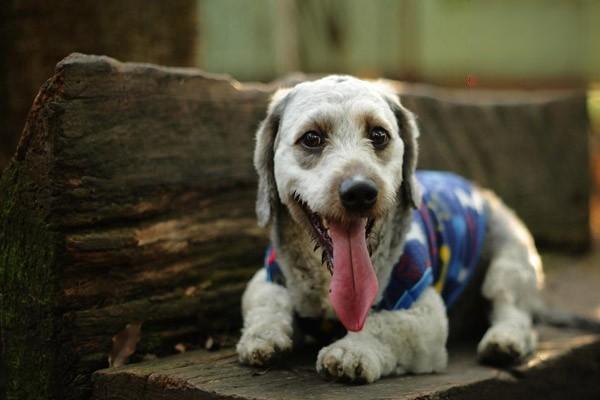
This disease has no obvious seasonality, but the incidence rate is slightly higher in spring and autumn. Some people think it is caused by nutritional deficiency diseases, infectious diseases, and skin itching caused by external parasite infections, or habitual self-biting caused by neurotic dogs. Sick dogs bite the tip of their tails and turn around in place in the kennel, and from time to time make "woof woof" sounds, showing extremely fierce and aggressive behavior. There is hair loss, ulceration, bleeding and scabbing at the tip of the tail. Some dogs also bite the base of the tail, buttocks or lateral abdomen, resulting in incomplete hair. Some sick dogs bite off all the hair on their bodies.
Recommendations from Dr. Pet Oxygen:
- Compound vitamin tablets (Pu'an Te) supplement vitamin B group elements, nourish the skin and hair, improve immunity. B1 and B12 can nourish nerves. Take it twice a day for 1 to 2 weeks.
- Weipuda amoxicillin powder is a broad-spectrum anti-inflammatory drug for pets and can be used to prevent inflammation and infection of wounds. Once a day for 3 to 5 consecutive days.
- Xiaobike lactate ethacridine solution is used for disinfection and sterilization of dog wounds. It can kill pyogenic bacteria such as Staphylococcus and Streptococcus. Use it 3 to 5 times a day for 5 to 7 days.
- Zinc oxide ointment has antibacterial and astringent effects and promotes the repair of the skin at the affected area. After disinfection, take an appropriate amount and apply it to the affected area.
- Chlorpheniramine maleate tablets can relieve the itching symptoms of dogs. For dogs: take 2-4 mg (half a tablet/one tablet) at a time.
- Tobitdol phenobarbital tablets are used for neurogenic canine self-biting syndrome to help dogs calm down. Single dose: 6-12 milligrams/kilogram.
- For canine self-biting syndrome caused by parasite infections, deworming should be done in time. Avermectin transdermal solution can be used for internal and external deworming once a month. 0.1 milligram/kilogram, once every 30 days, and drip it directly on the back.

Treatment plan for canine self-biting syndrome:
The treatment principles are sedation, anti-allergy, supplementing nutrition and preventing secondary infections.
- Chlorpromazine, 3 milligrams/kilogram, orally, twice a day; 1-2 milligrams/kilogram, intramuscular injection, once a day; 0.5-1 milligram/kilogram, intravenous drip, once a day.
- Amobarbital sodium, 5-10 milligrams/kilogram, orally; 2.5-5 milligrams/kilogram, intravenous drip.
- Diphenhydramine, 2-4 milligrams/kilogram, orally/intramuscular injection/intravenous drip, slowly.
- Chlorpheniramine, for dogs: 0.5 milligrams/kilogram, orally, 2 to 3 times a day; for cats: 2-4 milligrams, orally, twice a day.
- Ampicillin, 20-30 milligrams/kilogram, orally, 2-3 times a day; 10-20 milligrams/kilogram, intravenous drip/subcutaneous injection intramuscular injection, 2-3 times a day.
- Cefazolin sodium, 15-30 milligrams/kilogram, intravenous drip intramuscular injection, 3-4 times a day.
- Sumox (amoxicillin and clavulanate potassium suspension), for dogs/cats: 0.1 milliliters/kilogram, intramuscular injection/subcutaneous injection, once a day.
- Baytril (enrofloxacin) injection, 1 milliliter/kilogram, subcutaneous injection intramuscular injection, once a day.
- Vitamins B, C, sodium selenite, etc., orally/intramuscular injection.
Surgically remove the purulent and inflamed anal glands.
Apply erythromycin ointment locally.
 +86-15501882496
+86-15501882496 +86-15501882496
+86-15501882496

 Contact us:ejucms1@qq.com
Contact us:ejucms1@qq.com Add:920-1002 East Jiefang Road,Wuxi,Jiangsu,China
Add:920-1002 East Jiefang Road,Wuxi,Jiangsu,China